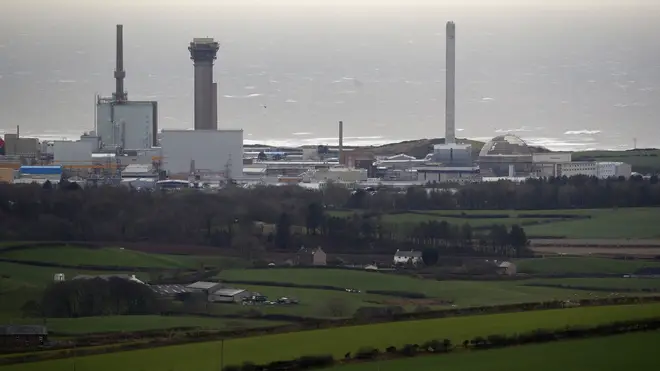
Matt Frei 10am - 12pm
20 January 2021, 00:04

The Sellafield site in Cumbria and the Fukushima Dai-ichi reactors in Japan will benefit from the project.
The UK and Japan are working together on developing new automated technologies to safely decommission old nuclear sites such as Fukushima as part of a £12 million partnership.
Robotics are set to play an essential part in the time-intensive task of decommissioning legacy nuclear facilities faster in a bid to remove risk to human health.
Long-reach robotic arms will be used at the Sellafield site in Cumbria, as well as the Fukushima Dai-ichi reactors in Japan – which suffered a nuclear disaster in March 2011 after an earthquake and tsunami destroyed key cooling functions.
The collaboration will also enable the two countries to pursue research into fusion energy – a form of low-carbon energy whereby the power of the sun is replicated on Earth.
“To unlock the amazing potential of nuclear power, it’s critical that the UK works hand in hand with international partners to safely decommission nuclear sites while backing pioneering research into fusion, which could offer a limitless source of clean energy,” Amanda Solloway, UK minister for science, research and innovation, said.
“This innovative research alliance with Japan will ensure we share our expertise in robotics to address complex challenges such as nuclear decommissioning, while helping to secure highly skilled jobs across the country as we build back better from the pandemic.”
UK Research and Innovation (UKRI), the UK’s Nuclear Decommissioning Authority (NDA) and Japan’s Tokyo Electric Power Company (TEPCO) will foot the funding equally over four years.
Akira Ono, chief decommissioning officer of TEPCO, said: “It has been almost a decade since the Fukushima Daiichi(1F) accident on March 11 2011.
“TEPCO’s 1F decontamination and decommissioning was carried out initially on an emergency response basis, but we now will be entering the stage of taking on challenges in unchartered territory such as fuel debris retrieval (FDR).
“I recognise that the robotics and remote-control technology is one of the most important key success factors for the FDR project.”
Adrian Simper, group strategy and technology director at the NDA, added: “Robotics offers us new ways to tackle our complex work safely, securely and cost-effectively.
“This unique international collaboration allows us to pool expertise and experience from Japan, working together and investing in cutting edge ways to find solutions to our shared problems and benefit our clean-up mission.”